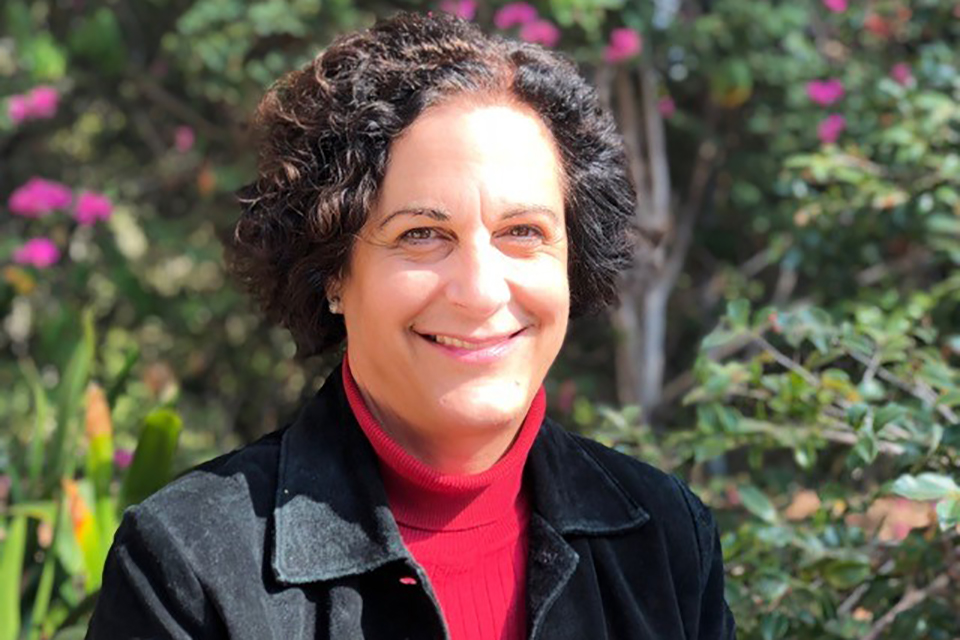Epidemiologist and CSUN Alumna Dr. Shaker-Irwin Sheds Light on Current COVID-19 Clinical Trials
CSUN alumna Dr. Laurie Ann Shaker-Irwin ’87 (Epidemiology) is a leader in the field of epidemiology. Her specialty is stem cell research and getting clinical trials up and running. She played a key role in speeding up the testing and approvals for important HIV drug treatments. She is currently the UCLA Clinical and Transitional Science Institute Research Facilitator & Patient Advocate.
At a moment when a vaccine against the COVID-19 virus is on the distant horizon, CSUN Today reached out to her and asked some questions to share her insights on the COVID-19 pandemic and when we might see a cure.
When did clinical trials begin for COVID-19?
I recommend patients or the public go to clinicaltrials.gov, and type in COVID-19 as a keyword. That would be an ideal website for the public to go to. And most of these trials are being done in hospital-based settings with the most severe patients, to see if these agents would work as a treatment. I did see some vaccine trials in there as well. Many of these trials have been going on in China for about a month or two.
Do you have any thoughts as to how long it will take for a vaccine and when treatment/medication will be available for the public?
As far as the treatment (clinical trials), I’m more clear on the clinical research side. I think the one trial that’s going to be started up under the sponsorship of NIAID (National Institute of Allergy and Infectious Diseases) is recruiting 400 patients. Again, that’s going to be nationwide in hospital-based settings with the most severe patients who might benefit from this treatment, and so that should take no longer than three to four months to accrue that 400 patients.
Each patient is on the study for 30 days’ time and the answer may be available in six months to a year depending upon the subject enrollment and analysis of the data.
As for the vaccine side, there are several trials listed on the website with vaccine candidates. These trials take a little bit longer to determine efficacy as researchers need large numbers of high-risk participants to see whether the vaccine confers immunity.
Is there anything that you could compare this pandemic to that you’ve seen in your lifetime or in your professional career?
Not with the expansive efforts to do the social distancing, in addition to placing large numbers of people in a position where they have no fundamental purpose if they are not able to work or work at the capacity that they would hope for.
I worry about mental health resources. I worry about the downstream effects of this on people’s emotions and people’s ability to cope. And I see it with my son as well. He’s a college student who is completely going remote, and now he’s in a stay-at-home mode here in Los Angeles. No, I have not seen this and I’ve not seen it on this scale. And the whole idea of preparing for the worst in terms of making sure you have the resources at home, making sure that the elderly and vulnerable are cared for. No I haven’t seen this.
During this time of uncertainty, is there anything that you’re seeing that makes you optimistic?
From the clinical standpoint, yes. The rapid escalation of resources toward the epidemic and getting these hospitals ready to receive that peak number of patients and the volume that we anticipate probably in the next few weeks here in Los Angeles. The peak is still yet to come.
And so from the psychosocial standpoint, it makes it difficult to hear of someone experiencing fear over the virus, someone who’s been laid off from their job or someone who potentially could get evicted, someone who couldn’t put food on their table for their family. These are pretty high-risk groups out there, and you have to think of all the social challenges that might be involved with this.
Are you seeing faster progress in moving clinical trials forward than what is typical?
Oh yes, for clinical trials, yes definitely. When an academic medical center decides to do a COVID clinical trial, all the resources are sent toward that. Whereas, (in comparison to) clinical trials that might have routinely taken two to three months to start up at an academic medical center, could now see start-up in about two weeks.
Shaker-Irwin suggested that individuals check the federal, CDC, NIH, and the NIAID websites on a regular basis. Clinical research advancements on COVID-19 can be found at:
www.coronavirus.gov
www.nih.gov/coronavirus
www.cdc.gov/coronavirus/2019-nCoV/index.html
www.niaid.nih.gov
For specific research clinical trials, the public may search the clinical trials website using keywords related to a particular condition and/or investigational agents being tested.
www.clinicaltrials.gov


 experience
experience